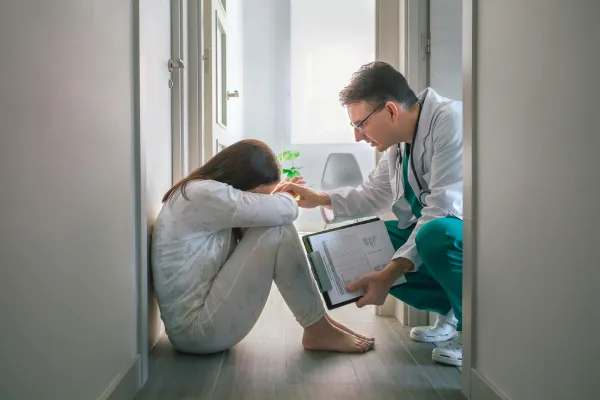

Mental Health vs. Mental Illness: Why Knowing the Difference Matters
Let’s face it. Talking about mental health can feel confusing, intimidating, and even a little scary. We hear terms like mental illness and mental health thrown around all the time, often interchangeably. But they’re not the same thing.
Understanding the difference isn’t just for therapists or psychologists; it’s something we all need to get clear on. Whether you’re trying to support a loved one, take better care of yourself, or just make sense of the emotional ups and downs of daily life, this knowledge matters. A lot.
So let’s break it down together, in plain English.
What’s the Difference Between Mental Health and Mental Illness?
Here’s a simple way to think about it:
Mental health is something everyone has.
Mental illness is something some people experience.
Mental Health = Your Emotional Wellbeing
Mental health is like your inner weather system. It includes your mood, your ability to manage stress, how you relate to others, how you make decisions, and how you cope with life’s highs and lows.
When your mental health is strong, you might feel:
Able to bounce back from stress
Connected to others
Motivated and productive
Capable of making decisions and handling daily tasks
And when your mental health is struggling? You might feel overwhelmed, disconnected, stuck in a fog, or just not like yourself. But that doesn’t necessarily mean you have a mental illness.
Mental Illness = A Diagnosable Condition
Mental illness refers to a set of diagnosable conditions that significantly interfere with thinking, mood, behavior, or functioning. Think of disorders like depression, anxiety, bipolar disorder, PTSD, OCD, schizophrenia, and more.
These conditions are typically diagnosed by a mental health professional based on patterns of symptoms over time. They may require treatment like therapy, medication, or lifestyle changes.
According to the World Health Organization, one in eight people globally live with a mental disorder.
But here’s a crucial point: You can have poor mental health without having a mental illness. And you can live with a mental illness and still cultivate good mental health with the right tools and support.
5 Actionable Steps to Support Your Mental Health (Whether You Have a Diagnosis or Not)
Let’s talk about what you can do because there’s always something you can do to support your mental health, no matter where you're starting from.
1. Check in with yourself daily
Just like we check our phones or the weather, it’s helpful to pause and ask: “How am I feeling today?” You can even jot it down or use a mood-tracking app.
Questions to ask:
Am I feeling overwhelmed, numb, or anxious?
What do I need right now: rest, connection, movement, stillness?
What’s one kind thing I can do for myself today?
2. Prioritize sleep, food, and movement
These are your mental health foundations, not just physical health habits.
Lack of sleep affects mood, memory, and resilience.
Skipping meals or eating poorly can mess with your brain chemistry.
Regular movement, even a short walk, boosts feel-good chemicals like endorphins and serotonin.
3. Talk to someone you trust
You don’t have to “have it all together” to reach out. You don’t need a diagnosis to ask for support. Whether it’s a friend, family member, or mentor, connection helps us process emotions and feel less alone.
According to the National Institute of Health (NIH), social support does not only protect mental health but also indirectly affect it by improving self-esteem.
4. Set boundaries and protect your peace
Pay attention to the people, places, and habits that drain you. It’s okay to say no. It’s okay to rest. It’s okay to take a step back from social media or toxic relationships.
Boundaries aren’t walls, they’re gates. They let the good in and keep the harmful out.
5. Be gentle with yourself
Life is hard sometimes. We all have tough days, messy emotions, and moments where we don’t feel like ourselves. That’s part of being human.
Self-compassion is not a luxury, it’s a necessity. Try talking to yourself like you would a dear friend. You don’t have to be perfect. You just have to keep showing up.
When to Consider Therapy or Professional Support
Let’s be real, some things are too heavy to carry alone. And that’s not weakness; it’s wisdom.
Consider talking to a therapist if:
Your mood or anxiety is interfering with work, relationships, or daily life
You feel stuck, hopeless, or emotionally numb
You’re having panic attacks or uncontrollable worries
You’ve experienced trauma or loss you haven’t fully processed
You’re turning to substances, food, or self-harm to cope
A good therapist can help you make sense of what’s going on and give you tools to feel better. You don’t need to “wait until it’s really bad” to ask for help.
ABOUT US

Jeanne Prinzivalli
Therapist + Coach
I help ambitious, anxious women learn how to trust and put themselves first, so they can stop burning themselves out trying to meet other people's expectations.
SELF CARE CONTINUUM
CLIENT LINKS
LET'S CONNECT
Let’s get you started on relief from self-sabotaging patterns so you can move forward with your life and career passions.
Self Care Continuum Copyright © 2023.




